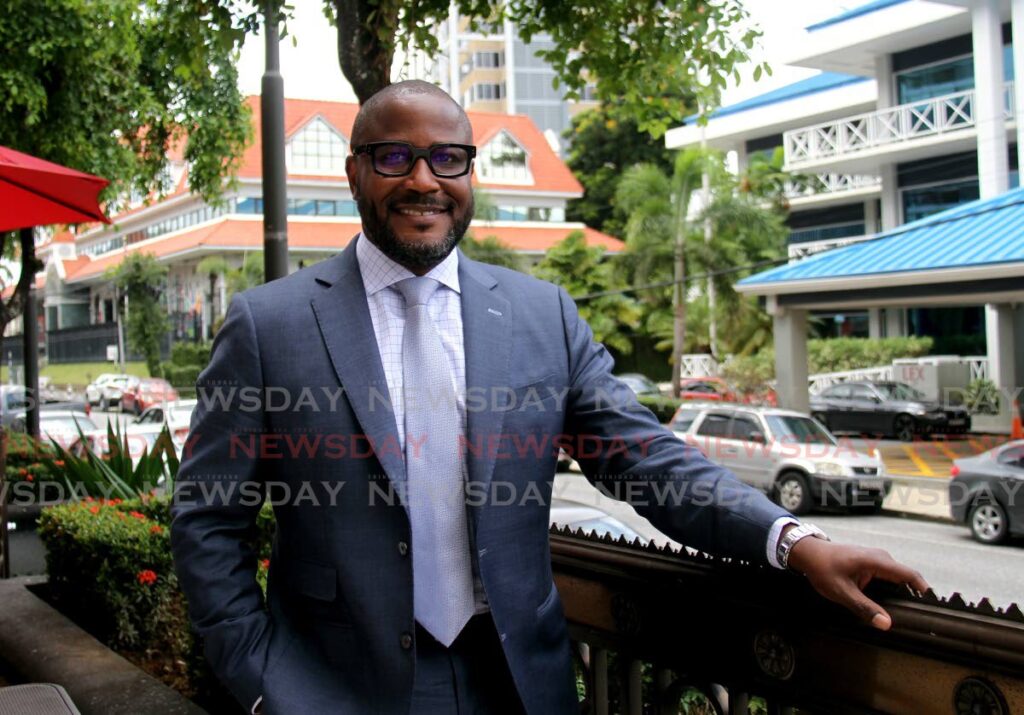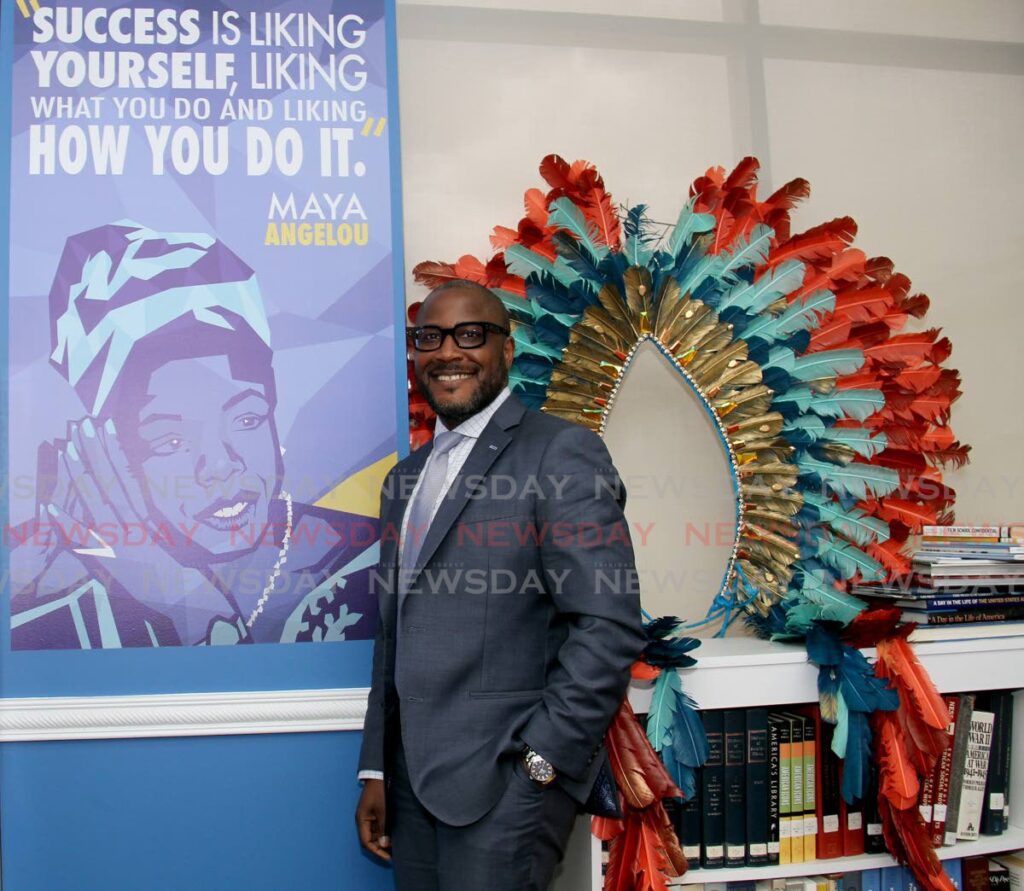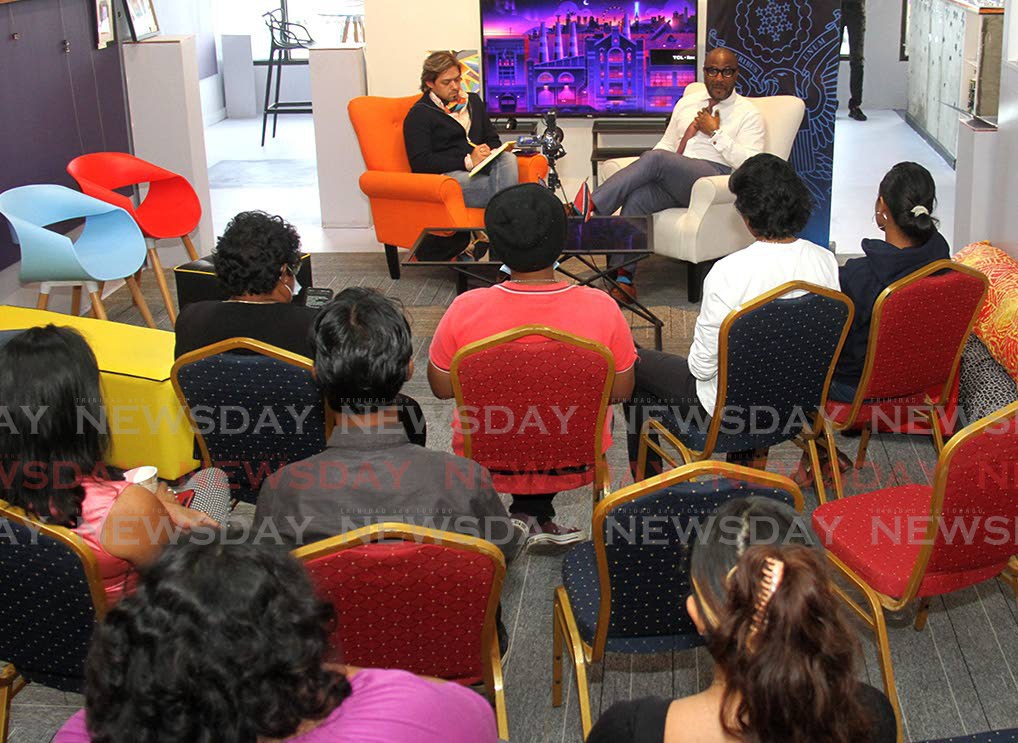Out and equal: LGBTQI advocate talks inclusivity in the business world

No citizen of Trinidad and Tobago – a rich, diverse, beautiful country with opportunities for all its citizens to thrive – should have to leave simply because they are different.
This was the position of Allyn Shaw, an activist for inclusivity visiting from New York, and executive for Wells Fargo and Company. Shaw, who serves on the board of Out and Equal, an LGBT community centre in New York, is an elected member of the Victory Fund Campaign Board which seeks to actively increase the number of queer voices in public office.
He was recognised by the US State Department as a notable LGBTQI+ American, driving economic equality. He was also named to Diversity MBA World’s top 100 business leaders under 50, and in 2020 he was honoured by Adweek for his role in changing the face of LGBTQI inclusion across the global landscape. Most recently he was awarded the Tri-State Unity Council’s LBGTQI+ Leadership Award at their 2022 Unity Summit.
In a week-long visit to TT last week, Shaw was able to speak to government officials, and advocates for inclusivity in the LGBTQI communities. He learned that for many people in the LGBTQI community, there isn’t enough opportunity for them to be their "whole selves," and that is causing them to leave the country to seek better opportunities elsewhere.
But in an interview with Business Day last week Shaw noted that this was not limited to the LGBTQI community. Many people who have faced some sort of discrimination because of where they live, their physical or mental differences or because of who they love, are looking to greener pastures and causing TT to lose diverse and capable talent to other countries.
Shaw called for the public and private sectors to seek out diverse people and increase inclusivity. He said as in every other country, a more inclusive environment would greatly benefit TT’s businesses and society as a whole.
Still I rise
Growing up in Compton, and living in places such as Pomona and Claremont, Shaw’s mother made it a point to ensure that he and his sister got the best education possible. However, that was a great challenge because they lived on "the wrong side of the tracks" – poorer communities which were usually neglected and systematically separated from more developed communities.
As a result his mother sheltered them both from the outside world and the dangers of life in high-risk communities.

“I remember growing up my mother used to tell me, ‘You will not become a statistic.’ And as a child, you don't really know what that means,” he said. “I had no idea we were poor. I had no idea there was crime. I just knew that everyone looked like me.
“I didn't understand why she was so strict growing up until I became an adult. I finally understood the environmental concerns that she was trying to protect my sister and me from.”
He said his mother would not let him go out and play stickball with the other kids, but would ensure that he took that time to read and take care of his younger sister.
Because of this, Shaw developed a love for poetry and classical music. While other children would have baseball players or basketball players or movie stars as their heroes his heroes were people like former US secretaries of state Colin Powell and Condoleezza Rice. But his greatest inspiration was poet and civil rights activist Maya Angelou and her poem Still I Rise.
He said the poem, especially the lines "bringing the gifts that my ancestors gave, I am the dream and the hope of the slave," resonated with him in terms of his obligation and responsibility to uplift as he climbed.
“It inspired me to provide opportunity for people like me,” he said. “It helped me to not look at my difference as just being a black man, but a black man that is part of the LGBT community, and know that I am my whole self. It took me reading that poem for me to really believe that I can be whoever I want to be.”
Shaw’s motivation to help people who were seen as different or not seen at all was also fostered by his experiences growing up in poorer communities. He recalled having to walk to his high school, growing up in California in the 70s. Once again Shaw never really understood the motives behind his mother's dropping them off a few blocks away from his high school – a predominantly white school – until he was much older.
“When I became an adult I recognised that your school district and where you go to school was based on where you lived,” he said. “If you lived on the ‘wrong side of the tracks’ you had to go to the predominantly black schools and your education may not be the same. But if you lived on the other side you went to the white schools where the education, teachers and facilities were better.”
He realised that although she could not afford the housing in the appropriate areas to take her children to schools that were better than those where they lived, his mother still tried to work around the system by falsifying her address so they could go to the "white" schools.

He said those experiences bolstered his desire to ensure all people, regardless of their identity, geography or capability, could be given the opportunity to thrive.
“If I think about it, this goes back to that poem, Still I Rise. It goes back to my ancestors, my parents and the things that they did to make sure that my sister and I had every opportunity they could afford us to be successful. That that really started to build for me my motivations and and my kind of my relationship with success. Not on the backs of others, but so that I give homage to those who came before me to help me get to where I am today.”
We can be better together
Shaw said in his conversations with government officials and activists in the LGBTQI+ communities he was told that many people have to choose between whom they love and the societies they live in.
“What I've learned is that they have this decision to make: do I become my whole self, my true self and I thrive as an individual, or do I suppress who I am and suppress my rights in order to maintain my relationship with my country, my faith and my family? I don't think anyone should have to make that decision. Both can coexist.”
He added that the gap is not limited to the LGBTQI community. There are also instances where individuals who are outside of that community complain of a lack of jobs and opportunities to own property or create a business, and as a result they feel that in order to achieve these goals they have to leave.
He noted that some of these people do come back with better resources and education to establish themselves in TT, but most do not.
Shaw said in order to invest and grow as a community and country; we have to strive to be better together. He said it has to be acknowledged that one cannot bring economic viability and increase the skills, education and employment for people by being divisive.
“You have to come together as a people to improve the overall quality of life of your people,” he said.
He added that as head of the Office of the Chief Technology of Wells Fargo and Company, he focuses on the intersection of technology, cyber security, enterprise change, finance, risk, environmental social and governance. He also works across the company to reinvigorate and unleash the potential of Wells Fargo’s employees by leveraging innovative technology and engagement to drive production. He said in his capacity at Wells Fargo he tries to make his team as diverse as possible, which is something that TT, whether in business or in society as a whole, should emulate.
“It is great business to have diverse thought processes. It's even better business to make sure that you're employing diverse teams and creating your business,” he said. “In order for me to create brilliant products and services, I have to create them so it is attractive to people who are different. I want to be able to create products and services that that are cherished and loved by women, by men, by people who have ethnic diversity, people who are neurodiverse. When you make a good product, you want everyone to consume that product. ”
“The only way to do that is to make sure that the people that are creating and developing that product, in and of themselves are diverse. That's how you remove bias from advertising. That's how you remove bias from algorithms. You have to ensure that people working on those products, working on the technology are representative of the community, and our communities are vast and very diverse.”
Shaw said in his conversations he recognised there is still a lot of hope in diverse communities that government bodies, religious bodies and society as a whole could see them and recognise their worth.
“I think there's a lot of people that I've encountered that that's really hopeful that, you know, government and religious leaders can find a way to love their neighbour and to love their country and coexist.”


Comments
"Out and equal: LGBTQI advocate talks inclusivity in the business world"